Why Lawyers Struggle with Document Profiling—and How AI Offers a Solution
Lawyers excel at navigating complex legal matters, but many struggle with time-consuming administrative tasks like document profiling. This challenge doesn’t arise from a lack of skill—it stems from the overwhelming volume of documents lawyers handle, coupled with limited time. Between court appearances, client meetings, and legal research, document profiling can feel like a tedious distraction from core legal activities. Fortunately, AI is changing the game by automating and streamlining the process.
Written by Knowledge Team, posted on Oct 09, 2024
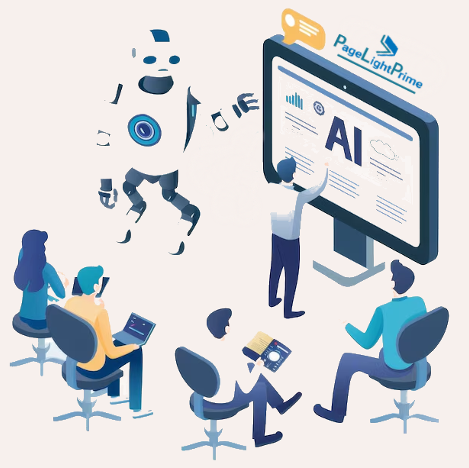
The Challenge of Document Profiling
Document profiling—organizing and tagging files for quick retrieval—is often more time-consuming than anticipated. Lawyers handle thousands of documents each week, and many spend over 20 hours a month just on profiling. Here’s why it presents such a challenge:
Time-Intensive
Profiling large volumes of documents consumes a significant amount of time—something busy attorneys often lack.
Indirect Legal Work
While crucial, document profiling doesn’t directly relate to drafting legal arguments or advising clients, making it easy to deprioritize.
Mental Fatigue
Sorting and tagging high volumes of documents requires sustained focus, which can be difficult to maintain alongside other legal work and tight deadlines.

How AI is Transforming Document Profiling
Artificial Intelligence (AI) offers a powerful solution to these challenges by automating document profiling. PageLightPrime Legal Document Management Software, integrated with Microsoft Copilot and Power Automate, simplify document management tasks while maintaining accuracy and speed. Here’s how the AI-driven process works:
Document Upload
The system identifies the file type and prepares it for processing.
Initial Data Extraction
Law Firm Optical Character Recognition (OCR) converts scanned documents into machine-readable text, while metadata extraction gathers basic document information.
Natural Language Processing (NLP)
AI analyzes the text to understand the document’s context and identify key phrases.
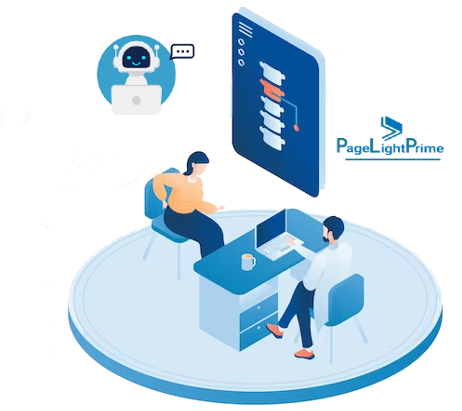
Document Classification
Machine learning algorithms categorize the document based on its content.
Automated Tagging
AI generates relevant tags to ensure consistency across the document repository.
Storage and Organization
Documents are stored in the appropriate folder structure, making retrieval easy.
User Notification
Lawyers receive confirmation that profiling is complete.
Continuous Learning
The system refines its performance based on user feedback.
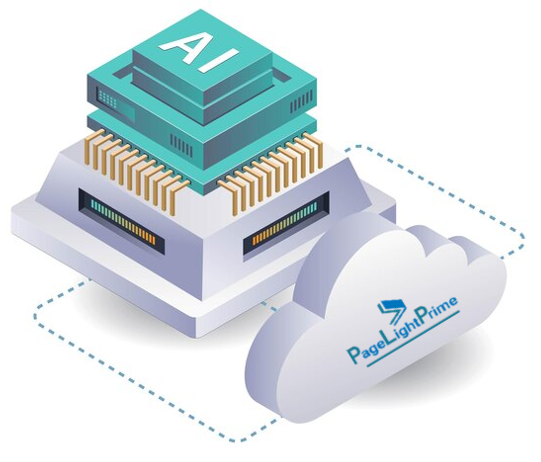
Efficiency
AI processes and categorizes documents far faster than humans, with immediate file organization upon upload.
Consistency
Unlike humans, AI doesn’t get fatigued, ensuring accurate tagging and reliable categorization for every document.
Scalability
As the volume of documents increases, AI scales effortlessly, maintaining high performance without delays or bottlenecks.
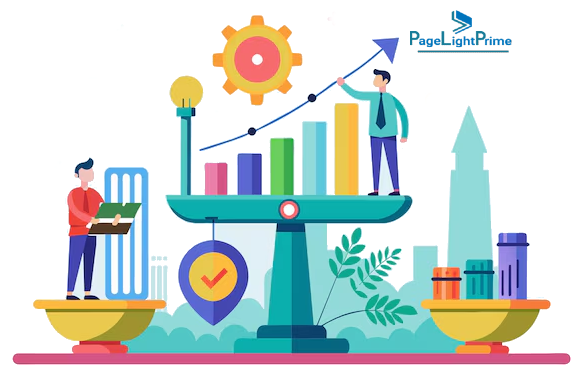
Real-World Success Stories: AI in Action
Several law firms have already experienced significant improvements by adopting AI-driven document profiling. Here are a few success stories of modern Legal DMS.
Corporate Law Firm
Facing delays due to manual profiling, this mid-sized corporate law firm implemented PageLightPrime and Microsoft Copilot. The results:
- A 70% reduction in processing time—documents that once took hours to organize are now done in minutes.
- A 98% increase in retrieval accuracy, with human errors nearly eliminated.
- A 15% increase in time spent on billable client tasks, allowing lawyers to focus on core legal work.
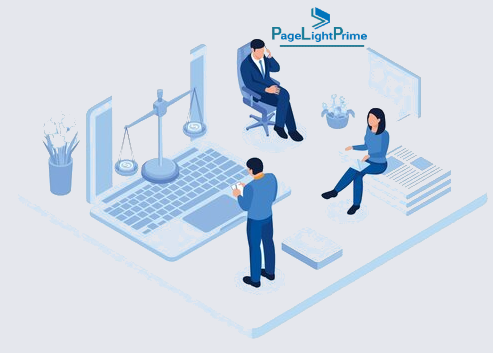
Litigation Law Office
This boutique litigation firm struggled with growing case volumes. After integrating AI-based profiling, they saw:
- A 50% increase in case volume, allowing them to handle more cases without needing additional staff.
- A 40% faster case preparation process, thanks to seamless document retrieval.
Family Law Office
- A 30% boost in client satisfaction due to quicker document access and response times.
- A savings of 10 hours weekly, freeing up paralegals and junior attorneys to focus on client needs.
- A 20% increase in case closure rates, leading to faster case resolution.

Why AI is a Low-Risk, High-Reward Investment
AI in document profiling presents minimal risk while offering a substantial return on investment. In the rare case of an error, such as mis categorization, it’s easy to correct without significant repercussions.
The benefits—faster processing, reduced errors, and enhanced workflow efficiency—make AI a low-risk, high-reward investment for law firms.
For law firms exploring where to begin with AI, document profiling offers a low-risk, high-reward starting point. It significantly improves operational efficiency while being easy to implement.

Overcoming AI Implementation Challenges
While AI provides numerous benefits, law firms must navigate some challenges during implementation, including:
- Costs associated with AI adoption
- The need for staff training to effectively utilize new systems
- Potential resistance to change within the organization
By addressing these challenges proactively, firms can pave the way for successful AI integration into their document management processes.
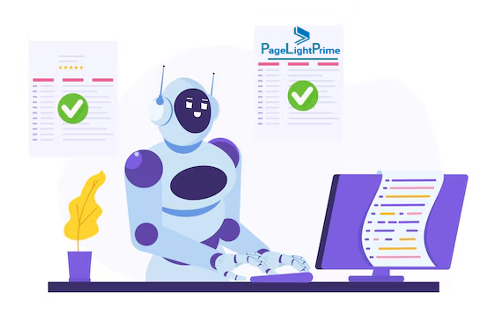
Getting Started with AI in Document Management
The real-world examples illustrate how AI-powered tools like Microsoft Copilot and PageLightPrime are optimizing document management in law firms. Automating the profiling process not only saves time and reduces errors but also empowers lawyers to focus on high-value work, such as advising clients and preparing cases.
To begin benefiting from AI, law firms should:
- Evaluate their current document management processes to identify inefficiencies.
- Evaluate their current document management processes to identify inefficiencies.
- Engage with staff to address potential resistance and ensure a smooth transition.
- Start with a pilot program to implement AI in document profiling before a full-scale rollout.
If you’re interested in exploring how AI can improve your firm’s document management, contact PageLightPrime today for a demo.
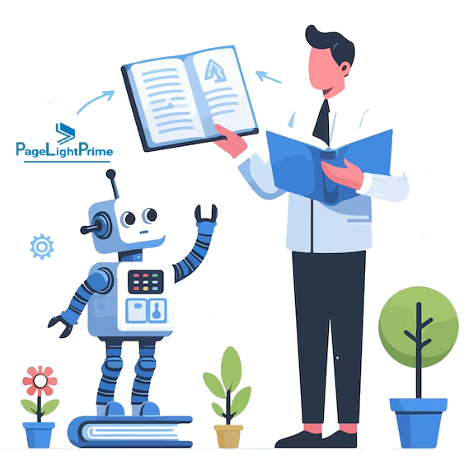
Conclusion
“
Embracing AI in document profiling allows law firms to achieve a powerful synergy between human expertise and technology. By automating administrative tasks, firms can boost productivity, reduce errors, and enhance client satisfaction—enabling lawyers to focus on what they do best: serving their clients and advancing justice.
“
Frequently Asked Questions (FAQ)
Why do lawyers struggle with document profiling
Lawyers face heavy workloads, and document profiling is time-consuming and repetitive. It often gets deprioritized, leading to delays.
How can AI help with document profiling
AI automates the categorization and tagging of documents, eliminating manual work and ensuring precision. This significantly speeds up the process.
What is Microsoft Copilot, and how does it improve document profiling
Microsoft Copilot analyzes and categorizes documents automatically, extracting relevant metadata for easy retrieval. Paired with Power Automate, it streamlines the entire process.
How secure is AI-driven document profiling
Platforms like PageLightPrime operate on Microsoft’s secure infrastructure, ensuring data encryption and protection with top-tier security measures.
